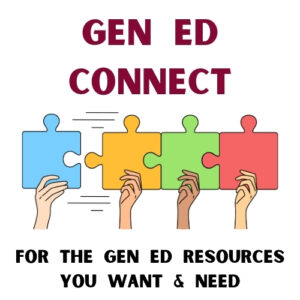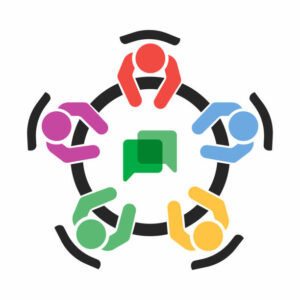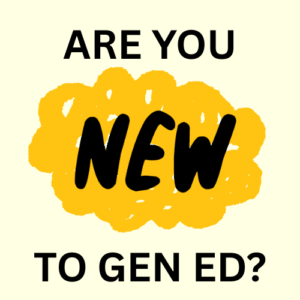Gen Ed Connect

Our relationships impact every aspect of our lives – from our physical and mental well-being to our ability to flourish at work.
As academics, we often talk about the importance of making connections with students, so they feel like they belong, and we care about their learning as well as them as individuals. We also know that cultivating connections for those times when ‘who you know’ assists with finding a job, promotion, funding, or publication among the many other ‘must do’ tasks expected of us.
AGLS has often said that we are more than an association – we are a community. Perhaps small, but we are strong and mighty in the support we provide for one another. The connections made in AGLS are often forged from the understanding of the challenging and often never-ending changes that occur in the world of general education. AGLS officers often hear from those who attend our meetings or virtual events that in AGLS they find people who understand and appreciate what they do daily. Often it is here, in AGLS, that they feel a sense of belonging and support that they do not find on their campus.
The connections made here may be for campus work (like accreditation or program review), or to find compatriots during the challenging times. For whatever reason, or however you have made your way here, be assured that you have a place here. You have found what we affectionately call your GEEPs (gen ed peeps). We get it. We will laugh, cry, scream, and celebrate with you.
Step right up and make a connection – better yet, become a regular part of our community.
Gen Ed Connect has three paths.
Click on the path for the start of today’s journey.
Find an External Reviewer

Everyone needs a ‘critical friend’ from time to time.
Find Professional Development Opportunities

You did not go to college to be a gen ed professional.
We are all learning along the way.
Click this pathway to invest in yourself.
Find Useful Resources

Have you recently or JUST stepped into the world of gen ed?
You have come to the right place.
